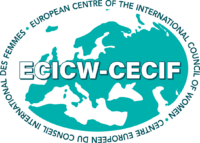Promoting the Role of Women in Conflict Resolution and Peacebuilding
Resolution passed in Kiev in September 2006.
(Original in English)
Recalling the UN Security Council Resolution 1325 on “Women, Peace and Security” and its urgent call for increased representation of women at all decision-making levels for the prevention, management and resolution of conflict,
Aware of the fact that despite women’s experiences as agents in building peace, preventing conflicts and guaranteeing security, and whilst indeed some progress is noted, unfortunately, in different parts of the globe women and children continue to be the major victims of conflicts, and struggle day by day in trying to survive and to overcome the hardships which are still their present lot,
Aware also that women’s contribution to the substance of peace negotiations is now widely recognized as a tool for attaining sustainable results, 22 years after the adoption of the UNSC Resolution 1325 women notably continue to be excluded from participation in peace processes and their pivotal role in conflict resolution is still marginal,
Recognizing the efforts of UN bodies, governments, women’s organizations and civil society activists, to implement resolution 1325 as part of strengthening women’s leadership and their full and equal participation in decision-making,
Reaffirming the Beijing Platform for Action, notably chapter IV.E on women and armed conflict and the United Nations Secretary General’s Report prepared for CSW65
THE INTERNATIONAL COUNCIL OF WOMEN CALLS UPON ALL ITS MEMBER COUNCILS TO:
- Develop cooperation with civil society stake-holders, Governments and national institutions, to take adequate measures that support local women’s peace initiatives and processes for conflict prevention and resolution, and that involve women in peace agreements’ negotiations;
- Make sure that women are sensitized to recognize their role in society and the importance of making their voice heard in conflict resolution and in peace-building;
- Encourage and spread innovative approaches breaking the old paradigms about peace, women and security, focusing on initiatives to ensure women’s full and effective participation and decision- making in public life;
- Establish and support peace-education programs – work that should progress on the development of non-racist textbooks and promote dialogue, from an early age, for democracy, tolerance and conflict resolution;
- Join hands with local, national and international organizations that promote the principles and values of peace, justice, and open- mindedness for acceptance across gender, race, religion, ethnicity and territories;
- Create coalitions around common concerns – encourage and strengthen cooperation between women’s organizations in order to perform more effectively for a clearer voice and a clearer message regarding the need for women in leadership positions, to promote economic and social stability, to remove causes of unrest and violence and to advocate for equality;
- Make wise use of social media to spread international understanding, democratic principles and women’s role in peace-building and conflict resolution.
